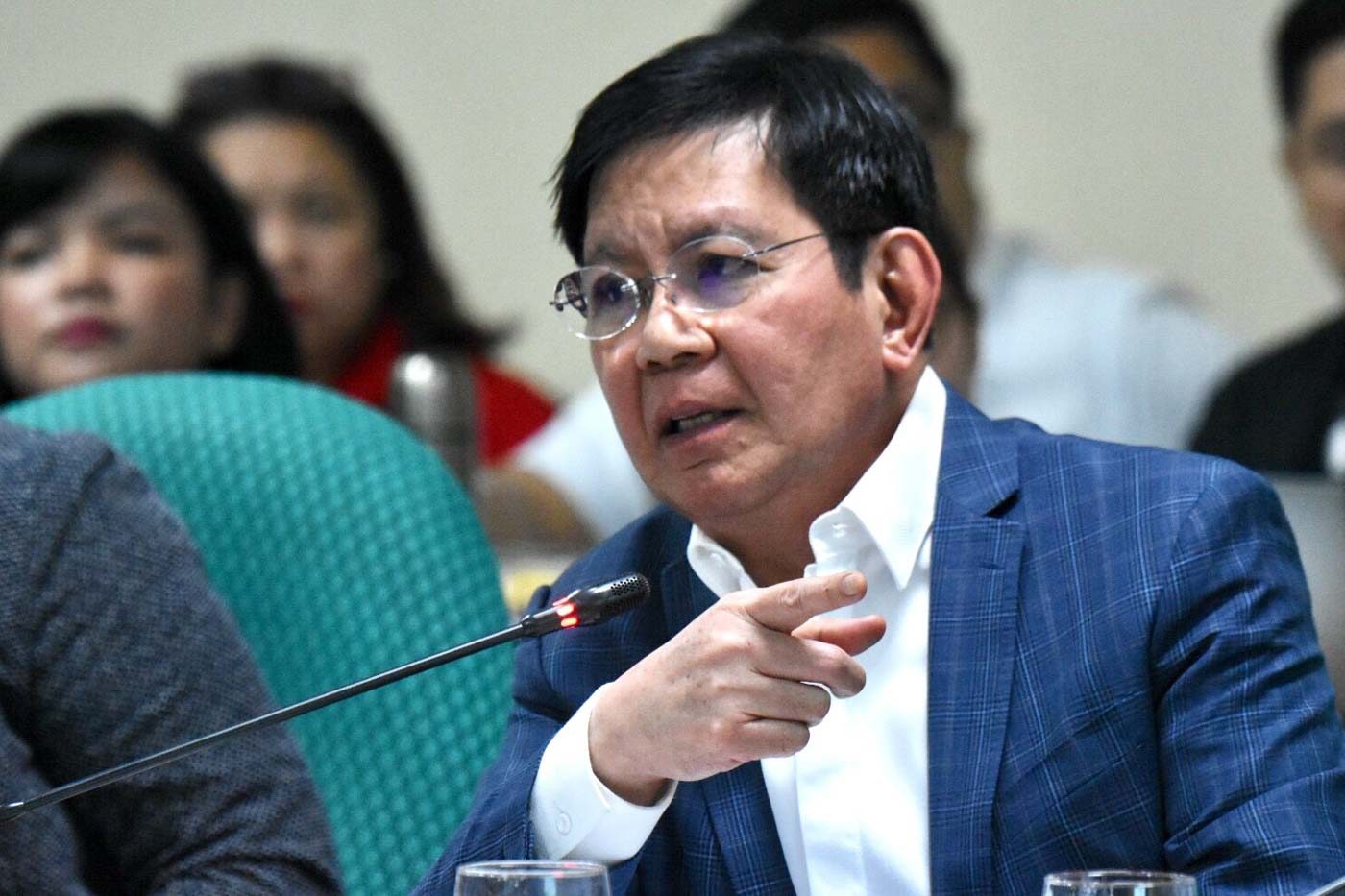SUMMARY
This is AI generated summarization, which may have errors. For context, always refer to the full article.

MANILA, Philippines – At least P82 billion in tax revenues from China were lost due to leakage in 2017, Senator Panfilo Lacson said on Thursday, August 29.
At the Senate briefing on the proposed P4.1-trillion national budget for 2020, Lacson said there were discrepancies between the import-export declarations of the Phlippines and China in the United Nations International Trade Statistics Database (UN Comtrade).
In 2017, China reported $32.07 billion worth of exports to the Philippines, and yet the Philippines only declared $18.48 billion in imports. Lacson said that with the dollar-peso exchange rate in 2017, the discrepancy stood stands at P684 billion.
“Kahit VAT (value-added tax) na lang i-multiply ‘nyo (Even if you multiply just the VAT), that’s P82 billion in 2017. And this happens every year. We’re only talking of China. We’re not yet talking about the others,” Lacson said.
“These are documents. These are not speculations. These are not rumors. Documents don’t lie,” Lacson added.
Senator Juan Edgardo Angara, the Senate finance committee chair, asked the Department of Finance whether the amount could be traced to underdeclaration.
“That’s technically smuggling,” he said.
Asked whether the Department of Finance has a ballpark figure of revenue loss annually, Undersecretary Karl Chua said this could be in the billions and attributed this to lax collection and lack of central control over ecozones.
“There are over 500 ecozones in the Philippines, all are separate custom territories with possibly a lot of leakage. The leakage that we are estimating from all these is up to P63 billion in 2017, so there’s a combination of factors [like] undervaluation, possibly tax evasion,” Chua said at the hearing.
Lacson said these types of leakage are “self-inflicted.” The senator said that the DOF should consider automating this to avoid revenue loss, pointing to the Bureau of Customs as possibly benefitting from the funds.
“May nakikinabang dito, Customs. So how about automation? Computerized na tayo pero there’s no automation. In other countries, wala nang human intervention. Everything is done online, so if we automate, we eliminate leakage, di ba?” he said.
(Somebody’s benefitting from this, it’s Customs. So how about automation? Everthing is already computerized, but there’s no automation. In other countries, there are no human intervention. Everything is done online, so if we automate, we eliminate leakage, right?)
In 2017, the Philippines reported a total of $101.89 billion worth of imports in the UN Comtrade’s World Trade Integrated Trade Solution database. A bulk of these were electronic parts, monolithic integrated circuits, and petroleum oils.
China is the top source of Philippine imports at $18.48 billion, with an 18.14% share of the market. It is followed by Japan at $11.8 billion (11.58% market share), and South Korea with $8.82 billion worth of imports (8.66% market share). – Rappler.com
Add a comment
How does this make you feel?
There are no comments yet. Add your comment to start the conversation.